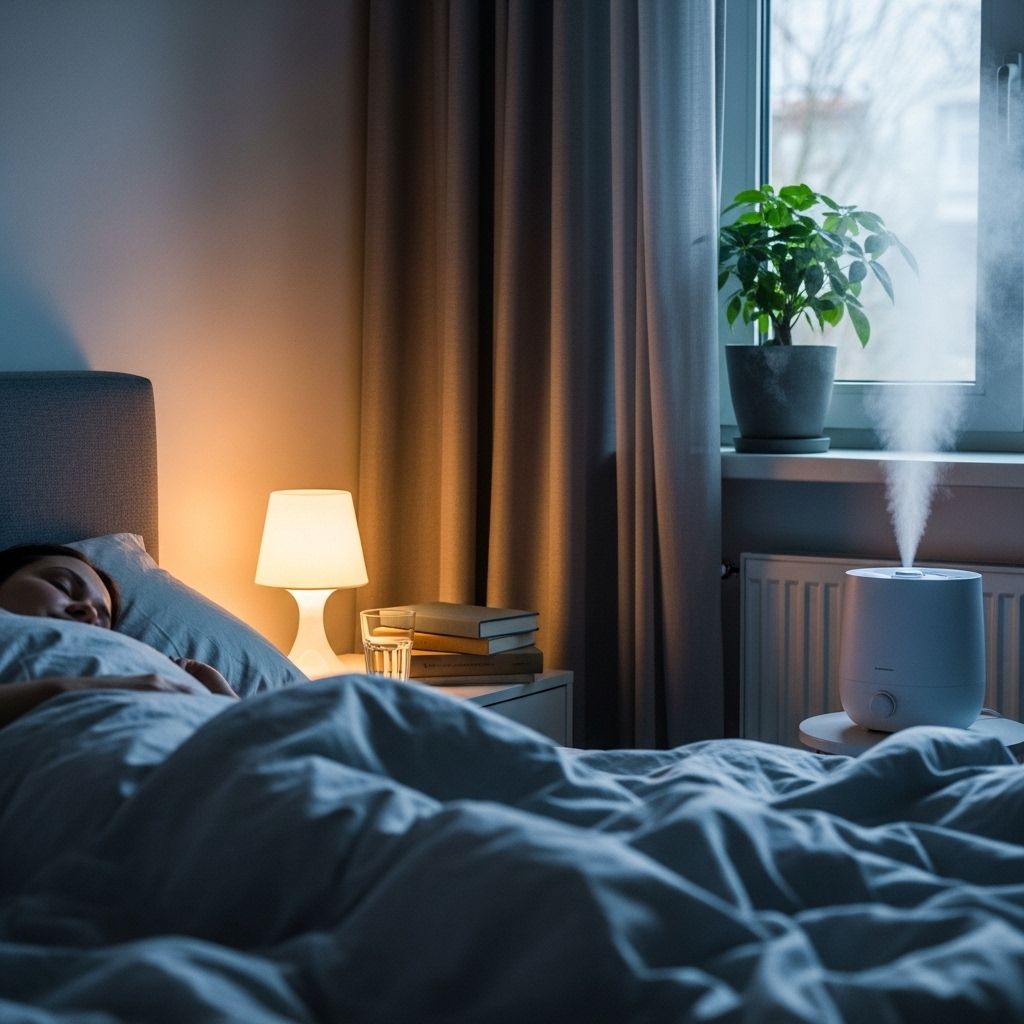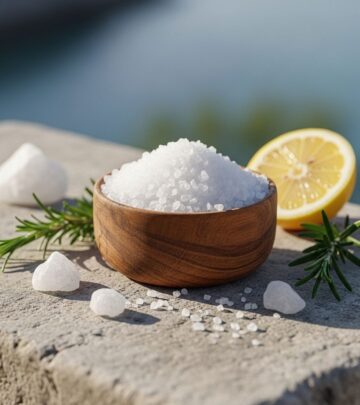Home Remedies for Sleep Apnea: Effective Natural Solutions to Improve Your Sleep
Transform your nightly routine with practices that boost breathing and rest quality.

Home Remedies For Sleep Apnea: 9 Effective Solutions To Improve Your Sleep
Sleep apnea is a common but serious sleep disorder that causes interrupted breathing during sleep. Many individuals suffer nightly from snoring, fatigue, and poor sleep quality, often without realizing the underlying cause. While medical treatments such as CPAP therapy remain the gold standard for moderate to severe cases, several effective home remedies and natural lifestyle changes can greatly reduce symptoms in mild or moderate sleep apnea and improve your overall well-being.
What Is Sleep Apnea?
Sleep apnea refers to repeated pauses in breathing during sleep, leading to less oxygen in the blood and frequent nighttime awakenings. The condition is broadly categorized into three types:
- Obstructive sleep apnea (OSA): The most common form, caused by blockage of the upper airway when throat muscles relax excessively.
- Central sleep apnea: Related to the brain failing to signal muscles to breathe.
- Complex (mixed) sleep apnea: A combination of obstructive and central types.
Key Symptoms of Sleep Apnea
- Loud, chronic snoring
- Gasping or choking episodes during sleep
- Daytime sleepiness and fatigue
- Morning headaches
- Difficulty concentrating and irritability
- Dry mouth or sore throat upon waking
Natural Home Remedies for Sleep Apnea
Implementing certain home remedies and lifestyle modifications can help manage mild sleep apnea symptoms and enhance your quality of sleep. Here are the top expert-recommended home solutions:
1. Manage Your Weight
Being overweight or obese increases the risk of sleep apnea by contributing to fatty deposits around the upper airway, which obstruct normal breathing during sleep. Research has shown that even modest weight loss can significantly reduce the severity of obstructive sleep apnea and possibly eliminate the need for surgical intervention or CPAP therapy. Weight management also improves overall health, including cardiovascular fitness and metabolic function.
- Adopt a balanced, nutrient-rich diet and monitor caloric intake.
- Incorporate regular physical activity such as walking, swimming, or cycling.
- Consult a healthcare provider or dietitian for individualized weight loss strategies.
2. Make Yoga a Part of Your Lifestyle
Yoga offers breathing exercises (pranayama) and postures that can improve respiratory strength, oxygen circulation, and relaxation. Studies suggest that yoga routines enhance oxygen saturation in the blood and may lessen the frequency and intensity of apnea episodes.
- Practice deep breathing exercises such as alternate nostril breathing, belly breathing, or the “lion’s breath.”
- Follow stretching sequences that promote better posture and lung expansion.
- Even short daily yoga sessions (15-20 minutes) may help.
3. Sleep On Your Side
Sleeping on your back (supine position) increases the likelihood of airway collapse and worsens apnea symptoms. In contrast, side sleeping helps keep the airway open and reduces snoring and breathing interruptions.
- Use special pillows or body cushions designed to support side-sleeping posture.
- Consider positional therapy devices or alarms to prevent rolling onto your back during sleep.
4. Make Use of a Humidifier
Dry air can irritate the respiratory system, aggravating sleep apnea symptoms and causing nasal congestion or a scratchy throat. A household humidifier increases air moisture to soothe the airway and can lessen discomfort during the night.
- Run a cool-mist humidifier in your bedroom, especially in dry climates or during winter.
- Clean your humidifier routinely to prevent mold or bacteria buildup.
5. Try Aromatherapy
Essential oils such as peppermint and lavender have natural anti-inflammatory and soothing properties that may reduce airway irritation and promote relaxation. Anecdotal evidence and some studies suggest aromatherapy can decrease snoring and improve sleep quality.
- Add a few drops of essential oils to your humidifier or use an oil diffuser before bedtime.
- Alternatively, try steam inhalation with peppermint oil for nasal decongestion.
- Always dilute essential oils and check for allergies before use.
6. Practice Throat Exercises
Specific throat and tongue exercises help strengthen the muscles of the upper airway, decreasing their tendency to collapse during sleep. Regular practice can significantly reduce sleep apnea severity for some individuals.
- Tongue curls: Roll your tongue backward to touch the soft palate. Hold for a few seconds and repeat several times daily.
- Vowel sounds: Clearly and loudly repeat the vowels “a, e, i, o, u” several times a day.
- Singing: Engage in vocal exercises or simply sing strong, sustained notes to engage airway muscles.
7. Avoid Alcohol Before Bedtime
Alcohol is a muscle relaxant that can overly relax the throat and tongue muscles, leading to airway obstruction during sleep. It also promotes inflammation and disrupts normal breathing patterns, worsening sleep apnea symptoms.
- Avoid consuming alcoholic beverages at least 3-4 hours before bedtime.
- Replace nightcaps with calming herbal teas such as chamomile or valerian root.
8. Incorporate Regular Exercise
Regular physical activity not only aids weight management but also reduces the frequency of apnea episodes, enhances fitness, and improves sleep quality by promoting restorative non-REM sleep.
- Engage in cardiovascular exercises such as brisk walking, jogging, swimming, or cycling.
- Include strength training 2-3 times per week for better body composition.
- Aim for at least 150 minutes of moderate-intensity exercise per week.
9. Avoid Smoking
Smoking irritates the respiratory tract, causes inflammation, and increases mucus production, all of which can aggravate sleep apnea. Nicotine is also a stimulant that disrupts sleep patterns and decreases sleep quality.
- Seek support to quit smoking through counseling, nicotine replacement therapy, or support groups.
- Quitting smoking can quickly improve breathing and reduce apnea severity.
Other Home Strategies and Considerations
- Maintain a regular sleep schedule—go to bed and wake up at the same time every day.
- Avoid caffeine and heavy meals within 2-3 hours of bedtime.
- Keep your bedroom dark, quiet, and cool to foster better sleep.
- Use nasal strips or saline rinses to relieve nasal congestion.
- Explore positional pillows or anti-snoring devices for extra support.
When Should You Consult a Doctor?
While most mild cases of sleep apnea can be managed with home remedies and lifestyle changes, moderate to severe cases require medical evaluation and treatment. Untreated sleep apnea significantly increases the risk for hypertension, heart disease, diabetes, stroke, and accidents caused by daytime drowsiness.
Consult a healthcare professional if you experience:
- Persistent loud snoring and witnessed apneic episodes (pauses in breathing) during sleep
- Chronic daytime sleepiness, even after a full night’s rest
- Mood disturbances or memory problems
- High blood pressure or heart concerns
- No improvement after trying several home remedies
Medical Treatments for Sleep Apnea
If home remedies do not provide sufficient relief, several effective medical options exist for sleep apnea management:
- Continuous Positive Airway Pressure (CPAP): A mask-based device that keeps the airway open using gentle air pressure.
- Oral appliances: Devices fitted by a dentist to reposition the jaw or tongue and maintain airway patency during sleep.
- Surgical procedures: In severe cases, surgery may remove or tighten excess throat tissue or correct structural issues.
Frequently Asked Questions (FAQs)
Q: How do I know if I have sleep apnea?
A: Common signs include loud, frequent snoring, daytime fatigue, choking or gasping during sleep, morning headaches, and concentration problems. Diagnosis requires a sleep study or polysomnography for confirmation.
Q: Are home remedies effective for severe sleep apnea?
A: Home remedies are useful for mild cases and as adjuncts in managing moderate cases. However, severe sleep apnea usually demands medical interventions such as CPAP therapy or surgery.
Q: Can losing weight cure sleep apnea?
A: Weight loss can dramatically reduce or even eliminate symptoms in overweight sufferers by decreasing fat deposits around the airway. However, some individuals may still require further treatment.
Q: What foods are best for sleep apnea?
A: While there’s no specific “sleep apnea diet,” a Mediterranean-style diet rich in fruits, vegetables, whole grains, lean proteins, and healthy fats can reduce inflammation and promote a healthy weight, both of which benefit sleep apnea management.
Q: Is yoga safe for everyone with sleep apnea?
A: Yoga is generally safe and beneficial, but individuals with cardiovascular, respiratory, or musculoskeletal issues should consult their doctor before adopting a new exercise regimen.
Summary Table: Home Remedies and Their Benefits
| Home Remedy | Main Benefit | How It Helps Sleep Apnea |
|---|---|---|
| Weight management | Reduces airway obstruction | Decreases fatty deposits around throat, improving airflow |
| Yoga | Improves respiration | Enhances oxygen flow and muscle tone in airway |
| Side sleeping | Keeps airway open | Prevents airway collapse, reduces apneic events |
| Humidifier | Soothe airway | Decreases dryness and irritation, eases breathing |
| Aromatherapy | Reduces inflammation | Calms airway with essential oils |
| Throat exercises | Strengthens muscles | Prevents airway collapse during sleep |
| Avoiding alcohol and smoking | Reduces irritants | Prevents airway relaxation and inflammation |
| Regular exercise | Improves fitness | Helps maintain healthy weight, boosts sleep quality |
Key Takeaways
- Home remedies can be highly effective for managing mild to moderate sleep apnea when integrated into a healthy daily routine.
- Lifestyle changes like weight management, yoga, side sleeping, and quitting smoking offer significant benefits for sleep apnea sufferers.
- Medical consultation is essential for persistent or severe symptoms; never ignore chronic sleep disruptions or daytime sleepiness.
References
- https://www.sleepidaho.com/home-remedies-for-sleep-apnea
- https://www.stylecraze.com/articles/home-remedies-for-sleep-apnea/
- https://www.goodrx.com/conditions/sleep-apnea/diet
- https://pmc.ncbi.nlm.nih.gov/articles/PMC8457263/
- https://www.mayoclinic.org/diseases-conditions/sleep-apnea/in-depth/cpap/art-20044164
- https://www.webmd.com/sleep-disorders/sleep-apnea/video/osa-home-habits
- https://bearaby.com/blogs/the-lay-low/sleep-apnea-treatment-home
- https://www.aarp.org/health/conditions-treatments/sleep-apnea-treatment-benefits/
- https://www.webmd.com/sleep-disorders/sleep-apnea/sleep-apnea
Read full bio of medha deb












